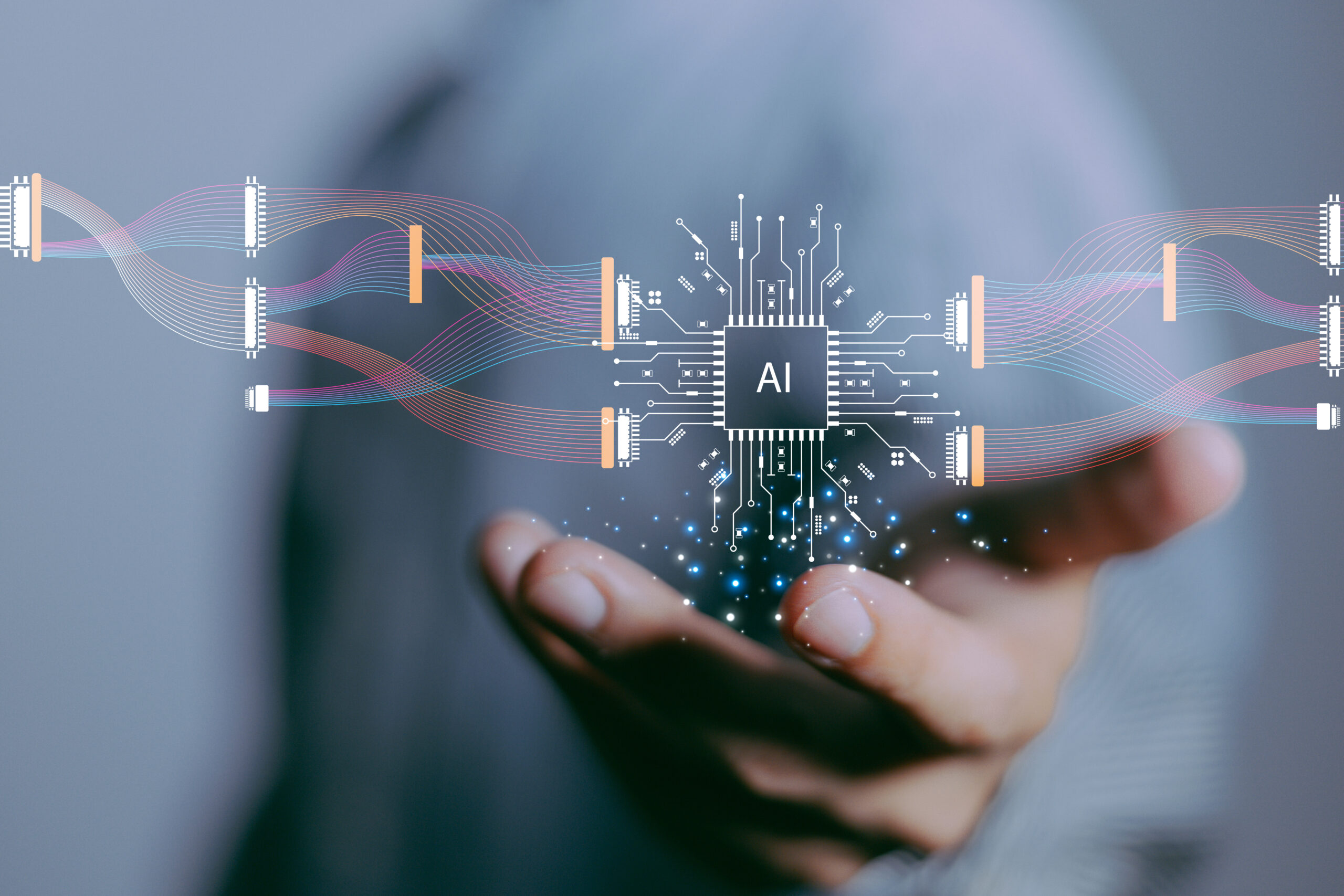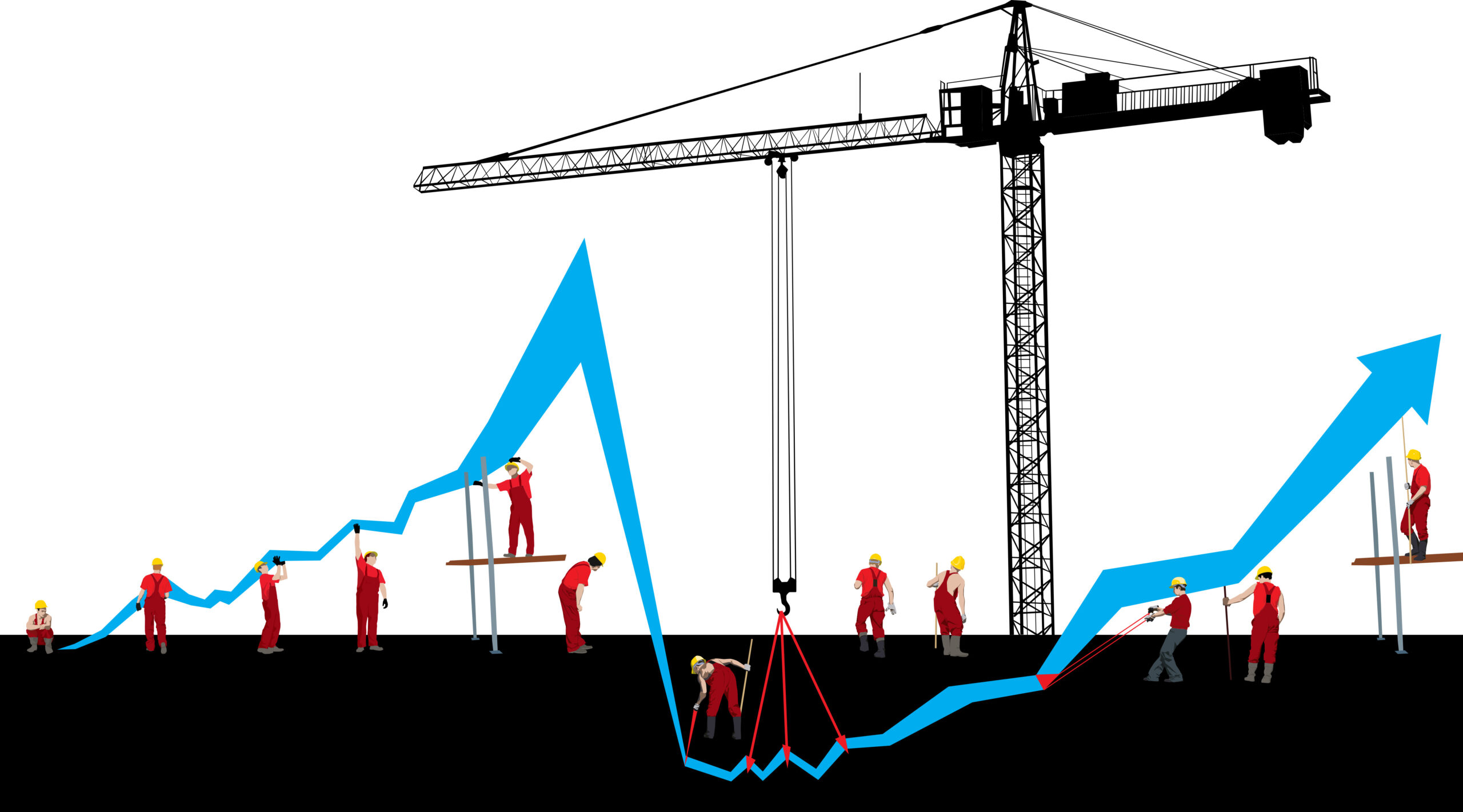Blog
AI Advancements in Construction Technology – Part 2
AI provides construction professionals with unprecedented insights, automates repetitive tasks, and enables more strategic decision-making. From intelligent recruiting to real-time project monitoring, AI is becoming the digital backbone of modern construction.
In the first installment of our AI series, we explored how AI is transforming construction takeoff, accounting, and safety and risk management. Now, we’ll examine how AI is reshaping three critical areas of construction business operations: human resources, project management, and customer relationship management.
AI in Human Resources
Construction businesses face unique HR challenges, from recruiting skilled workers to managing compliance and safety training. AI is helping address these challenges by streamlining processes and providing data-driven insights for better workforce management.
Automated Recruitment and Talent Acquisition
Traditional recruitment in construction can be time-consuming. AI-powered recruitment tools are transforming this process by automatically scanning resumes, filtering candidates based on specific skills and qualifications, and even predicting future labor needs based on project timelines. These systems can process thousands of applications quickly, helping HR teams identify the most qualified candidates while reducing hiring time.
AI chatbots are also streamlining the initial stages of recruitment by handling candidate inquiries and scheduling interviews. This automation ensures candidates receive prompt responses and updates throughout the hiring process and frees up time for HR teams to focus on more strategic tasks.
Enhanced Compliance and Safety Management
AI systems can help HR departments maintain compliance with complex labor laws and safety regulations by automatically tracking certifications, licenses, and training requirements. These systems can send automatic reminders when renewals are needed and flag potential compliance issues before they become problems. AI can also analyze data from wearable devices and site sensors to identify safety risks and recommend targeted training programs for specific workers or teams.
Additionally, AI-powered virtual reality (VR) simulations can improve safety training by providing immersive, hands-on experiences without the associated risks. These systems can adapt to each worker’s learning style and pace, ensuring more effective knowledge retention and skill development.
Optimized Workforce Management
AI algorithms can analyze variables such as employee availability, skills, project timelines, and labor requirements to optimize workforce scheduling and resource allocation. This ensures that the right workers are assigned to the right projects at the right time, improving efficiency and reducing downtime. AI can also track employee performance, identify skills gaps, and recommend personalized training programs to help workers develop new competencies.
The technology can also help with employee retention by analyzing patterns in worker satisfaction and identifying early warning signs of potential turnover. This allows HR teams to take proactive steps to address concerns and maintain a stable, experienced workforce.
AI in Project Management
Project management in construction requires coordinating numerous moving parts, from scheduling and resource allocation to risk management and progress tracking. AI is making these tasks more efficient and data driven.
Intelligent Project Scheduling and Resource Optimization
AI algorithms can analyze vast amounts of project data to create optimal schedules that account for various constraints such as weather conditions, material availability, and labor resources. These systems can automatically adjust schedules when delays occur and suggest alternative plans to keep projects on track. By analyzing historical project data, AI can also forecast resource needs more accurately, helping prevent shortages or overallocation.
The technology goes beyond basic scheduling by incorporating machine learning models that become more accurate over time. These models learn from past project outcomes to better predict potential delays and resource bottlenecks, allowing for more proactive project management.
Real-Time Progress Monitoring
AI-powered monitoring systems use data from various sources, including drones, sensors, and mobile devices, to track project progress in real time. These systems can automatically update project timelines, flag potential delays, and provide actionable insights through intuitive dashboards. This enables project managers to make informed decisions quickly and address issues before they impact the project schedule or budget.
Integration with Building Information Modeling (BIM) systems allows AI to compare actual construction progress against digital models, automatically identifying discrepancies and potential construction errors. This early detection capability helps reduce costly rework and keeps projects on schedule.
Enhanced Risk Management and Decision Making
AI’s predictive analytics capabilities help project managers identify potential risks before they materialize. By analyzing historical project data and current project conditions, AI can forecast potential issues such as cost overruns, delays, or safety hazards. This allows project managers to implement preventive measures and make data-driven decisions to mitigate risks effectively.
AI systems can also help optimize supply chain management by predicting material needs and potential supply disruptions. The technology can automatically suggest alternative suppliers or materials when delays or shortages are anticipated, helping maintain project momentum.
AI in Customer Relationship Management
Effective client communication and relationship management are crucial for construction businesses. AI is helping firms deliver better client experiences through automation and personalization.
Automated Client Communication
AI-powered systems can handle routine client communications automatically, from sending project updates to answering frequently asked questions. Chatbots provide 24/7 availability for basic inquiries, while automated email systems ensure timely follow-ups and progress reports. This consistent communication helps maintain strong client relationships throughout the project lifecycle.
Natural language processing capabilities enable these systems to understand and respond to client inquiries in a more natural, conversational manner. The technology can also analyze communication patterns to identify the most effective times and methods for client engagement.
Personalized Client Experiences
AI analyzes client data and interaction history to deliver more personalized experiences. The system can tailor communications based on client preferences, project types, and past interactions. This personalization can extend to project updates, proposals, and recommendations for future services, helping construction firms build stronger, more lasting client relationships.
Advanced AI systems can even predict client needs based on project patterns and industry trends, allowing construction firms to proactively suggest solutions before clients identify the need themselves.
Predictive Client Insights
By analyzing historical client data and communication patterns, AI can predict client satisfaction levels and identify potential issues before they escalate. These insights help construction firms proactively address client concerns and maintain high satisfaction levels. AI can also identify opportunities for upselling or cross-selling services based on client needs and project history.
The technology also helps optimize pricing strategies by analyzing successful past projects and market conditions, enabling construction firms to submit more competitive bids while maintaining profitability.
Conclusion
From streamlining HR processes and optimizing project management to enhancing client relationships, AI construction takeoffs and estimating software helped construction firms operate more efficiently and effectively. As these technologies continue to evolve, they will further transform how construction companies manage their workforce, execute projects, and serve their clients.
The integration of AI across these critical business functions is creating a more connected, data-driven construction industry that can better respond to challenges and opportunities. As AI technology continues to advance, we can expect even more innovative applications that will further revolutionize the industry.
Check back next month for the final installment in our AI series, where we’ll explore emerging AI technologies and what to look for in the coming year.




